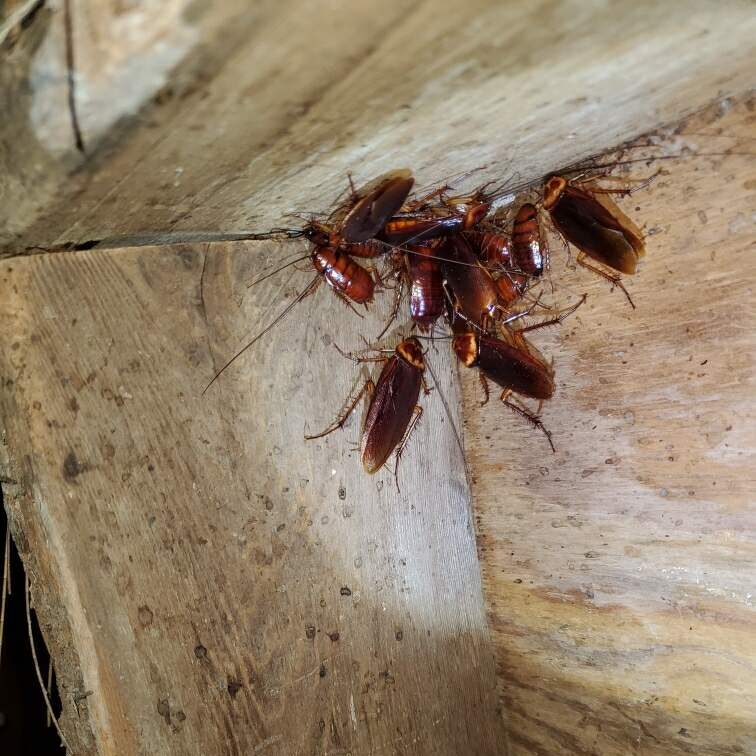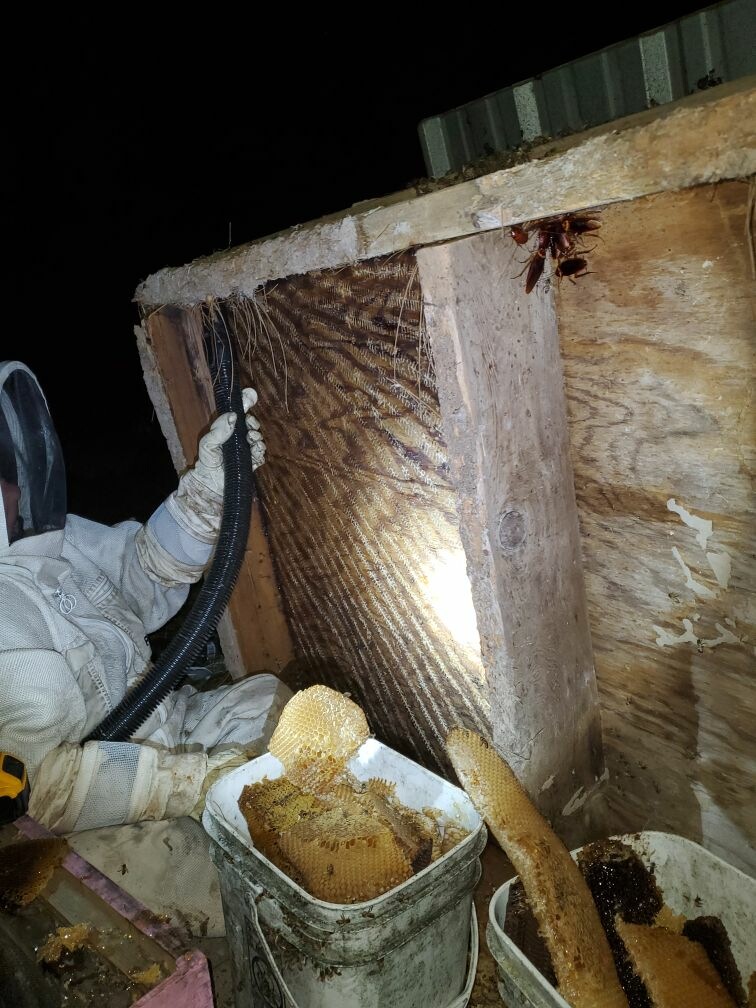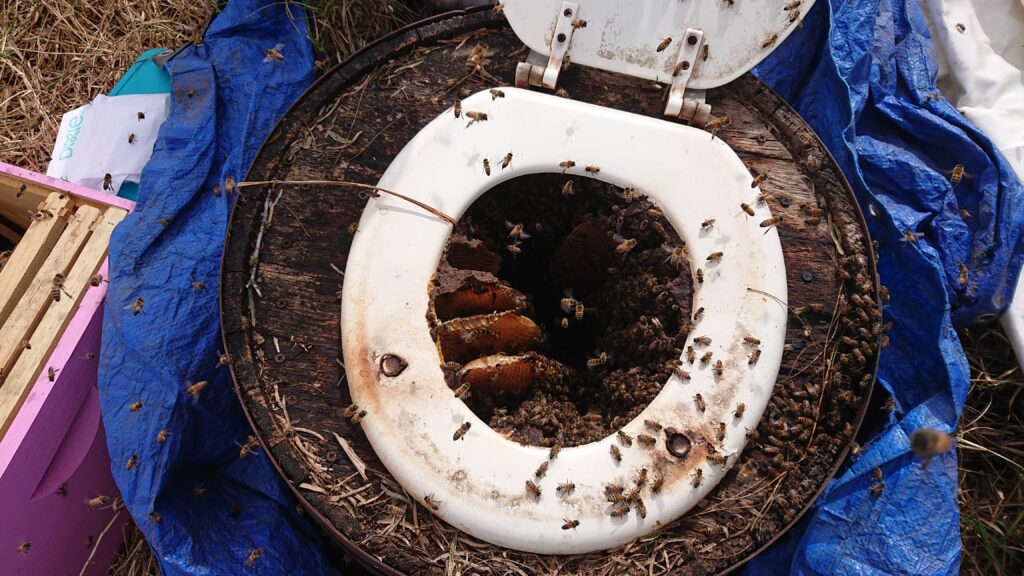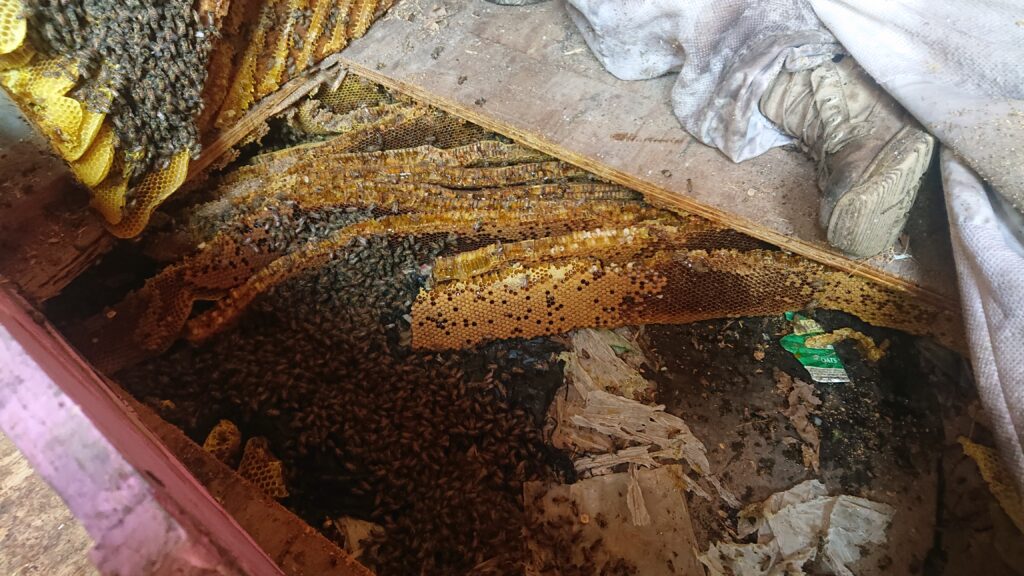No! You DON’T want that cut out honey!
While honey is delicious and a perfect addition for any treat, you absolutely do not want to honey we cut out during a bee removal. Be it from a house, shed, tree, or metal equipment, nobody can be sure what that honey has been exposed to.
One of the most common contaminates we see in and around feral beehives is rodent feces. It is more frequently found in the walls of occupied houses. Rats and mice love to eat honey and bee larva so will live in the same area as a hive. They poop indiscriminately wherever they are and so feces are on and around the honeycomb.
Similarly, we always encounter roaches no matter where the hive is. We’ve seen and smelled cockroaches in every single bee removal we’ve done. Like the rodents, bugs will infiltrate a hive to eat honey and if they remain under the radar, they will not cause the bees to attack them. Along with just walking on and eating the comb, they also leave droppings everywhere and can be found stuck to the comb.
Building material and other physical or chemical contaminates are also a concern. Not only do we find dirt in places such as sheds or even houses, we also never know exactly what a building was made from. There are several houses we’ve encountered that were old enough to need to worry about lead based paint and asbestos. We even were warned about asbestos for one removal and wore respirators to protect ourselves. Homeowners often utilize chemical bug foggers and other pesticides inside their house which may seep into the area the hive is, if not haven use chemicals directly on a hive.
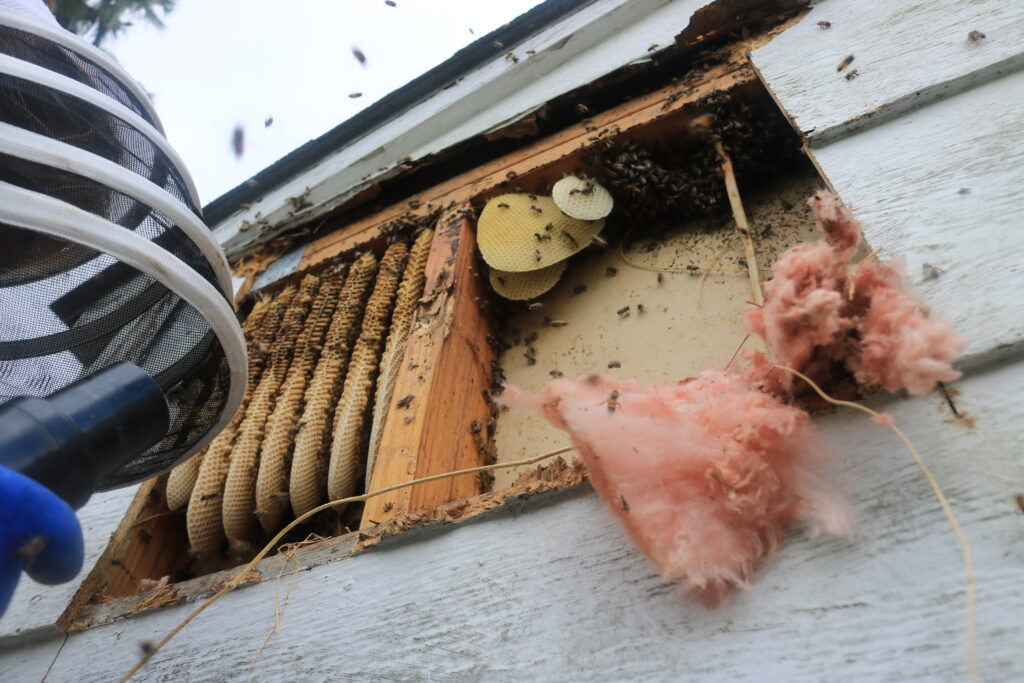
At the end of the day bottling the cut out honey violates health and food codes. Any honey from an uninspected hive can not be sold and certainly can not be used for human consumption. Effective on September 1, 2015 Texas passed Senate Bill 1766 which specifically states that small honey producers can only bottle and sell honey from a hive that is “owned and managed by that beekeeper.” While it is illegal to sell “rescue” or cut out honey, it is equally unethical to even give away honey to people who intend to eat it. While the comb may look clean, you just never know what it as been exposed to and can get people sick, especially younger or older folks.
We have seen other beekeepers give honey out to clients as an incentive to choose their business or just to be nice, however we in good conscious can not give people gifts that could potentially make others sick. Local, raw honey can be pricey but it’s not worth the risks!
In Texas we have a set of laws called Food Cottage Laws that allow for small businesses and individuals sell select types of products produced out of their homes without needing the home inspected by the Department of Health. Texas also has rules and regulations on how honey is bottled and labeled. Please consult with the resources below to learn more about these topics and how they relate to beekeepers.
Texas A&M AgriLife Research Texas Apiary Inspection Service – General Honey Information
Texas Ag Code Title 6, Subtitle A, Chapter 131 – Bees and Honey
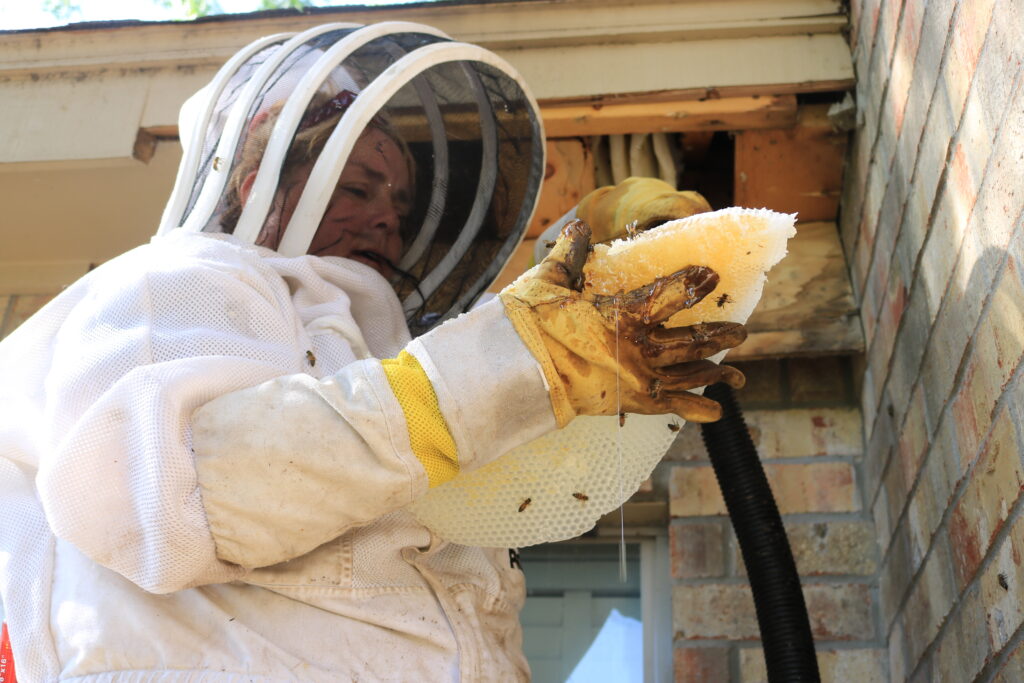
- Share:
